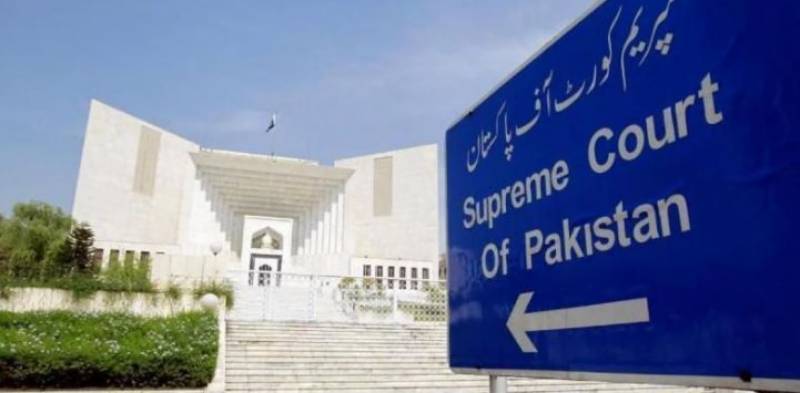Islamabad (Web Desk): The Supreme Court (SC) on Friday issued notices to Senator Faisal Vawda and Muttahida Qaumi Movement-Pakistan’s (MQM-P) Member of National Assembly (MNA) Mustafa Kamal, seeking their responses to recent comments made against the judiciary.
Both the leaders have been asked by the top court to appear before the bench at the next hearing.
A three-judge bench led by Chief Justice of Pakistan (CJP) Justice Qazi Faez Isa and comprising Justice Irfan Sadaat and Justice Naeem Akhtar Afghan conducted the hearing.
Additional Attorney General for Pakistan (AAG) Aamir Rehman appeared before the bench.
At the outset of the hearing CJP Isa asked AAG if he had watched the press conference and if it was derogatory.
To this, the AAG said that there were muted words in the press conference that he heard.
In his remarks, CJP Qazi Faiz Isa said if someone has done something bad then names should be taken, adding that the targetting of an institution will not be allowed.
"Institutions belong to the people and defaming them is not a service to the country," he said.
The CJP then asked the lawyer to read the constitution and law on freedom of expression and contempt of court.
“It seems like the press conference was done for a specific purpose,” the CJP said, adding that no one will be allowed to harm the institutions.
The CJP said that Mustafa Kamal also held a press conference after Vawda, adding that they should have spoken in the House as they are members of parliament.
The top court then issued notices to both politicians, summoning them before the bench. The court also sought the video recording and transcript of the press conferences.
The court directed also ordered Pakistan Electronic Media Regulatory Authority (PEMRA) to present the details of the questions asked in the press conferences and their answers.
The top court then adjourned the hearing till June 5.
On Thursday, the SC court took suo motu notice of the explosive press conference by the former federal minister in which he criticized the judiciary and asked Islamabad High Court (IHC) judge Babar Sattar to present evidence supporting his allegations about spy agencies meddling in the judiciary.
On Wednesday, two senators, Faisal Vawda and Pakistan Muslim League-Nawaz’s (PML-N) Talal Chaudhry, had held separatepress conferences, questioning the Islamabad High Court (IHC) judges’ claim that intelligence agencies had interfered in the judicial affairs.
The next day, two MNAs, Muttahida Qaumi Movement-Pakistan (MQM-P’s) Mustafa Kamal and Istehkam-i-Pakistan Party’s (IPP’s) Awn Chaudhry, also highlighted the judiciary’s alleged shortcomings and called for establishing ethical standards for the judges.
The top court’s suo motu came hours after IHC responded to Vawda's letter seeking clarification on Justice Sattar's citizenship. The court clarified that as per the Constitution of Pakistan, citizenship or residence permit of another country does not bar a lawyer from becoming a judge.
While addressing a press conference in Islamabad on Wednesday, Faisal Vawda criticised the IHC judges over their letter alleging meddling by spy agencies in judicial affairs, saying that targeting of institutions should stop.
Meanwhile, Mustafa Kamal claimed the judiciary had set "ethical standards" for politicians and that judges' dual citizenship was a "big question mark," demanding accountability from the judiciary. Awn warned that the issue could lead to "anarchy in the country."
The controversy surrounding Justice Sattar began after six IHC judges wrote a letter to the Supreme Judicial Council (SJC), complaining about intelligence agencies meddling in judicial affairs. Justice Sattar also became target of a smear campaign on social media and confidential information about him, including travel documents of him, his wife, and children, was leaked.
On May 14, Justice Sattar wrote a separate letter to IHC Chief Justice Aamer Farooq, disclosing that a 'top official' from the security establishment threatened him to back off from scrutinising surveillance procedures in the audio leaks case.


